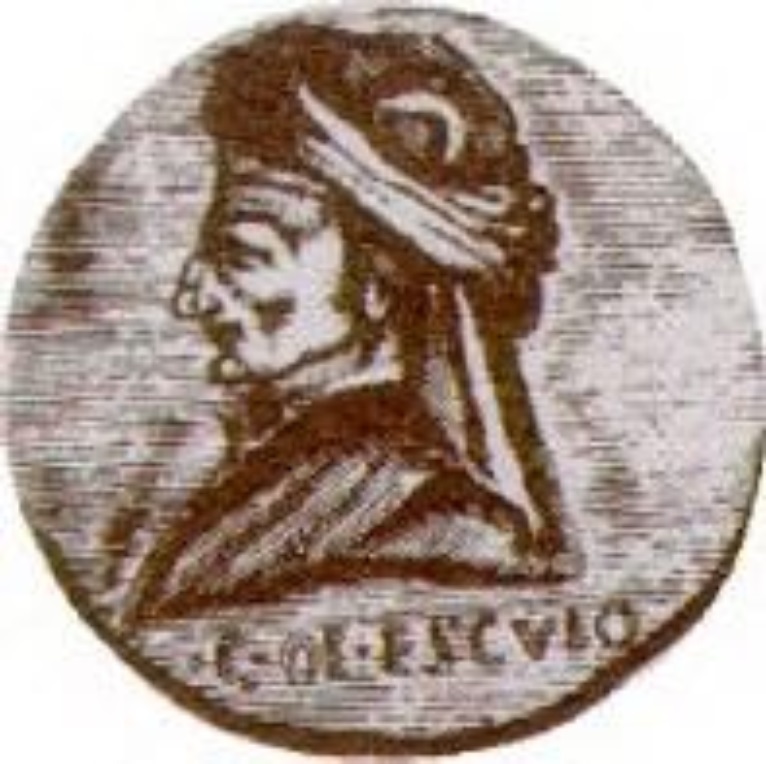Cecco d'Ascoli
Cecco d' Ascoli (actually: Francesco Stabili, scholars Name: Cichus Esculanus; * 1257 in Ascoli, † September 26, 1327 in Florence ) was an Italian poet, physician, astronomer, astrologer and free thinkers.
From 1322 worked Cecco as professor of mathematics and astronomy at the University of Bologna. It has been claimed that he. Avignon in the service of Pope John XXII stood and that he had sought the acquaintance of Dante, only to be armed to begin with him. For this purpose, there is no evidence. It is clear that Cecco has written a commentary on the Sphaera of John de Sacrobosco, where he set up bold claims about the work of demons. About Here he got into disagreements with the clergy, was sentenced in 1324 to fasting and prayer, and to pay a fine of 75 crowns. To avoid this penalty, he went to Florence, where he was taken in the home of the Duke Carlo of Calabria. According to other sources, he was accused by the Inquisition of heresy and removed from his offices on December 16, 1324.
Through his blatant freethinking Cecco had made many enemies, he had Dante's Commedia and Guido Cavalcanti's Canzone d' Amore criticized, so his fate was sealed. The physician Dino del Garbo sued him incessantly, the old accusation of impiety was reiterated, Cecco was put on trial and convicted, this time to death. The day after the verdict, in his seventieth year, he was burned on September 26, 1327 in Florence at the stake.
Cecco d' Ascoli left many works, most of which have never been published. The book, to which he owes his reputation, and that led to his death was the Acerba (of acervus ), an encyclopedic poem, from the to 1546, more than twenty editions were published the year of the last printed edition. It is unfinished and includes four books. The first book deals with astronomy and meteorology, the second the influence of the stars, physiognomy, vices and virtues; the third deals with minerals and of the love of the animals; the fourth discusses a series of moral and physical problems and their solutions. From a fifth book on theology only the beginning of the chapter is finished.
A man of immense erudition and of large and diverse skills, with a knowledge that was based on experiment and observation - which alone already you apart from the crowd of scholars of that age - Cecco was in some ways ahead of his contemporaries. He knew of metallic meteorites and shooting stars, the dew was no mystery to him, fossilized plants he explained by upheavals of the earth's surface, which led to the formation of mountains, he is said to have even recognized the bloodstream.
The least bad of many editions of the Acerba is the 1510 published in Venice. The earliest known edition, which has become exceedingly rare is that of Brescia, which, although undated, but can be dated about 1473.
The lunar crater is named after Cichus Cecco.









